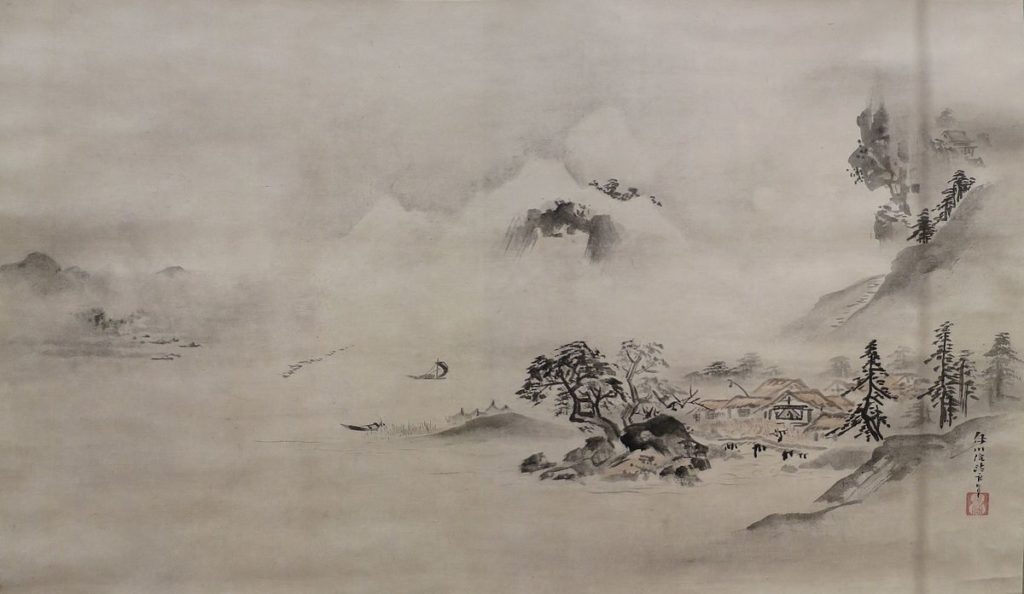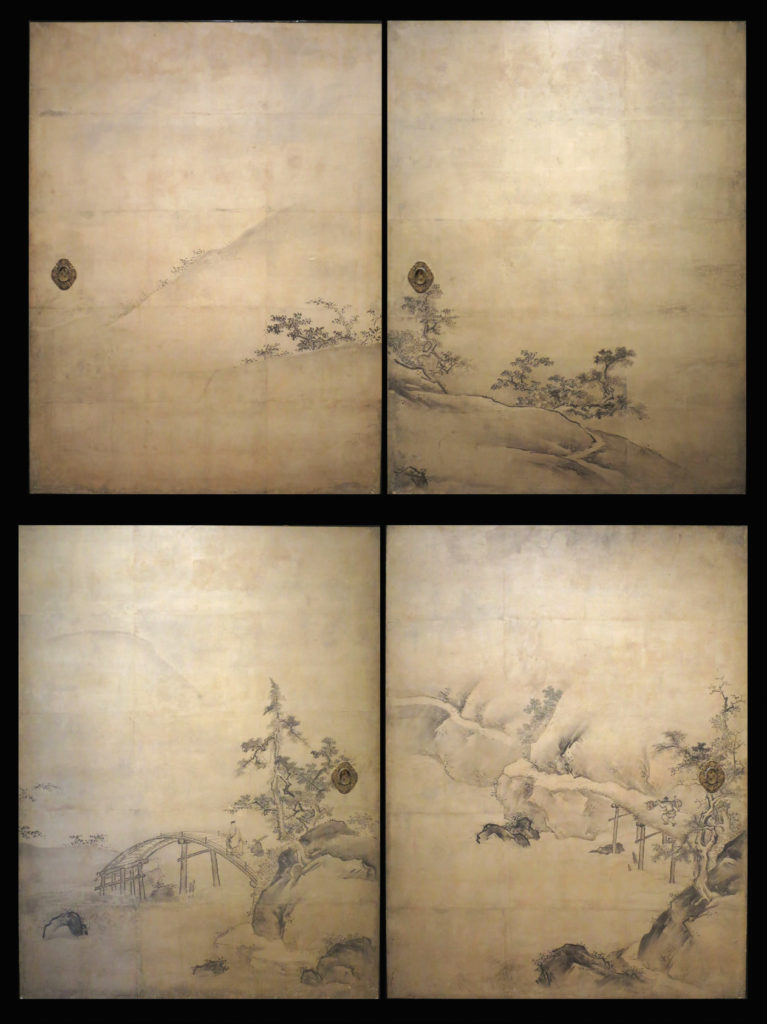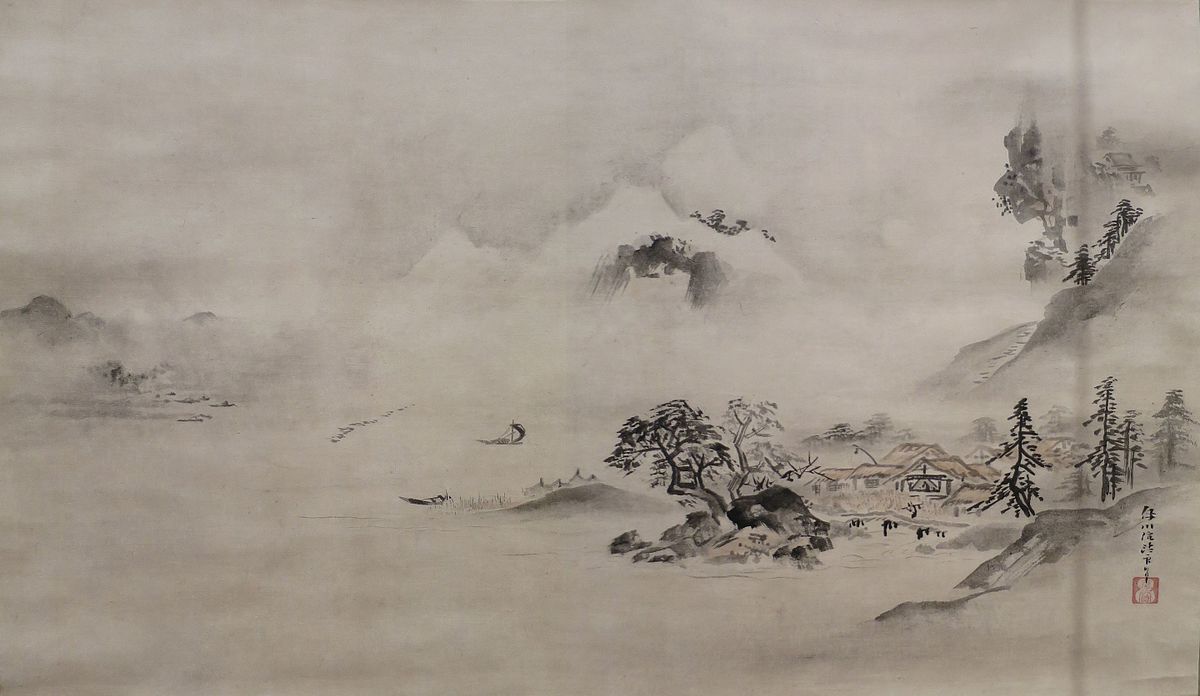
It is useful to reflect on what happiness is. The Sierra Nevada mountain range near Lake Tahoe is one of the most beautiful spots in the world. Some of my best memories of my youth are of times spent there. Some of the mountains are high for North America—14,000-foot peaks—and it is difficult, rugged terrain, but powerful and gorgeous. In my twenties, I would go up to the John Muir Trail and backpack for weeks, even months, absorbed in silence and the absolute majesty of the environment. The mountains were my religious temple; I called them my cathedral. They were a place of great inspiration, peace, and stillness. I have always felt connected to those mountains. A couple of years ago I was driving up there by myself to do a retreat. It takes about four hours to get to the Sierras from where I live. As soon as I reached the foothills, I laughed loudly and deeply for a good ten minutes with the joyousness of being back in those mountains. I have been to other places that are beautiful and profound, wildernesses that I enjoy immensely, but nothing is like the Sierras for me.
Part of the beauty of being in the mountains, especially when you are backpacking, is that it is a serious place to be, especially if you are up there alone and weeks away from any road. You must take care of yourself. You cannot be casual about it, as you cannot afford to break an ankle—it could be a long time before someone comes by. Even though these wild spaces are beautiful and sacred and brimming with a feeling of the divine, you are not in a playground. It is part of the intensity of the experience that you are out by yourself, far from any help. The beautiful thing about going into the real wild areas of the world is you enter them on their terms, and if you do not, they may wipe you out.
Years ago, I went on a twelve-day backpacking trip with a friend of mine, and the first evening I lit our stove, the line that connected it to the fuel bottle broke. We had all this food and no stove. In the Sierras, you are not supposed to make any open fires above 10,000 feet, and the trails we were on were mostly above 10,000 feet, so we had a dilemma. The funny thing is, this stove broke within a day’s walk of our car, so we could have easily turned around and left, but we never talked about going back. I never considered the possibility of not doing this trip. When we got down to some lower areas, we started tiny campfires—just enough to cook some food, as we were trying to do as little damage as possible—and sometimes we ate our food uncooked. I remember on the last night, with about thirty-six hours to go, we were low on food. We had only one small box of cornbread mix, and we had no way to cook it, because we were camping at close to 12,000 feet so we could not burn anything (there was nothing up there to burn anyway). I was famished, as we had walked about eighteen miles that day, so I put the mix in a bowl, stirred some water into it, and drank the whole thing down. I drank an entire box of cornbread mix! It was awful, but the next day I was glad I did because we had another twenty miles to hike out.
Even though it tasted terrible, I actually enjoyed that raw cornmeal, because in that moment I was in a direct relationship with life on life’s terms. As human beings, we get accustomed to bending everything to our comfort. Think about how much time and energy and money is spent on trying to make ourselves comfortable and fill our leisure time so we never have a moment of quietness. When you go into the mountains, you have none of that—you sleep on a half-inch-thick pad; it is freezing in the morning, even in the middle of the summer if you are higher than 10,000 feet; it is cold at night; you have to cook and wash all your dishes without a sink. You are having to conform to your environment constantly, almost every minute of the day, and if you do not, you could end up in big trouble fast.
This is what I have always loved about the mountains. There is no negotiating. The mountains make no effort to make us comfortable, and the beautiful thing is we find we do not need to be made comfortable. We can be tired, and our feet can be sore, and our hips can be painful, and we still pull the tent up, unpack everything, cook for ourselves, clean for ourselves, and pack it all up again in the morning. It is one task after another. Yet many people stay away from nature; they find the idea of backpacking horrendous. Who would want to do that? Who would want to sleep on the ground? To some, it sounds like purgatory at best.
It reminds me of when I first started to do retreats at Zen temples and monasteries. We were doing rigorous spiritual work, meditating for about fifteen periods a day and eating all our meals in meditation posture in the meditation hall, which added another three periods of sitting a day. One of the things I loved most is that those who ran that environment, that temple or retreat center, were not going to do anything to make my life easier. I had to fit into what they had established; otherwise I could go home. There was no negotiation.

Edo period, seventeenth century, ink on paper. Honolulu Museum of Art
I remember hearing the late Houn Jiyu-Kennett Roshi, who was the abbess of Shasta Abbey monastery in Mount Shasta, California, teach. She had done a lot of her Zen training at one of the biggest monasteries in Japan and was the first woman who ever went through it there, which was a difficult—at times even hellish—experience. She ended up becoming the first female to be sanctioned by the Soto School. Kennett Roshi told a wonderful story about the time a novice monk who had not been there long started to complain, although as nicely as he could, that he did not have enough room to sleep. In that monastery, you sleep where you meditate and eat; at night you put away your sitting cushion and roll out a thin mat. The novice approached the teacher, saying, “It seems a little confining for me. I need a little more space to sleep.” The teacher said, “Oh? Why don’t you lie down on the floor?” So the monk lay down on the floor, and the teacher took a piece of chalk and outlined his body. He put the mat on the top of the outline and said, “I have good news for you. You are smaller than the mat you are sleeping on. You have plenty of room. Good for you!”
That is not what the novice monk wanted to hear, but in a nice way he had been told, “This place is not changing for you, buddy. There is no room for your ego here.” This is part of what I liked about those retreats, even though they were challenging. There is no negotiation; you must let go of this comfort principle that can so easily start to dominate your life.
You realize you are in an environment that you must adapt to; the environment is not going adapt itself to you. If you are backpacking high up in the mountains, you adapt, go home, or die. In a Zen temple, you either adapt yourself to the procedures of that temple or you go home. There is no use arguing with anybody about it, as the rules are not going to change for you, and if you are stuck in your ego, it can be very difficult. You can always find thirty ways that things can be improved, but in a Zen temple nobody is listening to you, mostly because they have heard it all.
I am not a guy who likes ritual, I am not a big “form” guy, and I am not an organized religion guy—Arvis, my main teacher, taught out of her living room—but one of the things I like about Zen retreats, like being in the mountains, is that it is a relief to let all that comfort seeking go and enter something else. Something deep inside you rejoices when it no longer has to be preoccupied all the time with, How do I feel? Do I like it? Do I not like it? Is it right for me? Is it not right for me? You go to the grocery store, for God’s sake, and there are thirty different varieties of peanut butter to choose from. We may think, Oh, how lucky am I? Thirty kinds of peanut butter to choose from when I go to the market. But somebody in some other part of the world would love to have even one jar of peanut butter because they are starving to death, right? To them, thirty jars of peanut butter is ridiculous. Does having thirty kinds of peanut butter to choose from make us happier? Does it add enjoyment because we can spend that extra three or four minutes scratching our heads and wondering which peanut butter to buy?
My point is not whether we have a lot of choices or not; I am talking, not about those external things, but about our internal relationship with them. I found out that I could go into the mountains and leave behind that within me that is always analyzing and wondering, How’s this working for me, and is this as comfortable as I can make it, and is everything the way I want it? I could be completely relieved of that and go into an environment where that game does not play, because nobody is listening. You can talk to the trees and suggest they move themselves to a different place because they keep getting in the way of where you want to walk, but the trees are not listening, and they are not going to move. You can either rail against that fact or let go. And as soon as you let go, it is as if every tree is in the perfect place. How did that happen? How did every tree know to grow in the perfect location? A minute ago, it all seemed to be haphazard and wrong, but now it seems to be divinely planned. It is a switch of perception, is it not? A change of orientation, a turning of the heart, a letting go.
In the West, we are focused on comfort. I live in a place called Los Gatos, which is one of the more beautiful little towns in the Silicon Valley, right up against the foothills. My wife, Mukti, and I were walking downtown one time, and we passed a store that sold mattresses; every mattress in this store was organic, made of special material, and the most highly engineered thing you could buy. I laughed. Do we need beds that are that perfect? We are all taught that comfort is what makes you happy and that getting everything you want or as much as you want or as much as you can get will make you happy. Having things go the way you want makes you happy. Having an infinite variety of choices of the same thing makes you happy. Right?
Do not misunderstand me; if I have the choices in front of me, I will take part, I will choose the one I want, and I will recognize the ridiculous good fortune of living in a place that offers this number of choices. I know we are not going to go back to three types of peanut butter—hell, there were more than three types of peanut butter when I was a kid, and that was a long time ago. In a way, this is why I am talking about being in the wilderness—because I think it is good for us. I do things occasionally to keep myself familiar with hunger, discomfort, and cold. I’ll go out of my way at times to make myself less than comfortable, so that I do not lose contact with life.
I am aware that I am extremely privileged and can run back to being comfortable anytime I want, because this is the position that I am in and the country that I live in. We have an embarrassingly high proportion of people in poverty, but nonetheless we are an extraordinarily wealthy country. You walk into your house and you turn on your heat or your air conditioning; when it is dark you turn on the lights. But when you have things beyond your necessities, you are constantly managing life, which is why it can be beautiful to go back into the mountains and enter them on their terms. There is a freedom in that raw and direct experience of life. Out in the wilderness, when it gets dark, you go to bed. Even if you stay up reading a book with a flashlight, that battery is going to be gone soon, and you are going to have to go to sleep.
It is useful to reflect on what happiness is. I talk about deeper forms of satisfaction that are associated with spiritual awakening and revelation. On a more relative level, now and then do you take time—real time—to contemplate what makes you happy? It is nice to have comfortable things, and it is nice to reach in the refrigerator and pull out something yummy any darn time you want, but that is pleasure, that is not happiness. What makes you happy? What contributes to your happiness? What takes away from your happiness?
When we contemplate these questions in a deep way, they can bring us back to our senses, back to our center, back to our heart, and back to our being. We can return to loving the simple things and appreciating them. We can notice that we are happiest when we are contributing to the welfare of someone else; being a positive or benevolent presence in someone else’s life is a great contributor to happiness.
Making ourselves comfortable at every second does not necessarily make us happy. This is what I have found when I have gone back to the mountains, which I do every year: there is a happiness that is an aspect of being. To be is itself happiness. Even beyond the bliss of pure being, what contributes to happiness, flourishing, love, and joy? The things that come to my mind are not the things that bring me the most ease and comfort. I find satisfaction in actions like contributing to the welfare of others, loving well, and connecting with nature.
There are so many kinds of intimate connection, are there not? There is the intimate connection we have with friends or lovers or family members. Sometimes you can meet a stranger as you are standing in line at the grocery store and have an intimate connection. On a deeper level, we can have an intimate connection with the truth of our being, with the sacred dimension of life, and with what we call “the world around us.” The Zen master Dogen talked of enlightenment as an absolute intimacy with the ten thousand things. In Buddhism when they say, “The ten thousand things,” they mean everything. What is enlightenment? An absolute intimacy with the ten thousand things. That is happiness.
For a spiritual teacher, seeing the joy on a person’s face is wonderful. To witness someone take the next step in their own evolution—maybe it is a leap, maybe it is tiny—is a beautiful thing. There are things that contribute to happiness—ours and others’—and it is good to reflect on them and not assume we know. When we reflect, we can ask, Oh, how much of my energy, of my life force, am I putting into what makes me happy? Contemplate what contributes to your happiness. You might be surprised by some of the things you find.
It can be interesting to see how you contribute to the happiness of others. Not asking, How should I?—do not turn it into a big guilt trip—but asking, How do I? I do not think we need to be told what makes us happy, nor do I think we need to be told what makes others happy; rather, we need to be quiet and contemplate what nourishes happiness. The things that make people happy touch the human heart and the human soul.
You have activities that will move you or awaken a sense of sacredness, and they may not involve traipsing off into the mountains. What are yours? What is the thing that helps you reconnect? How much time do you spend doing it? Contemplate that, because you might find the means to your well-being and the well-being of others is a lot closer than you imagine. That is when all these elements start to come together—happiness, well-being, love, and compassion— and you start to feel they are just different ways of speaking, living, and experiencing the same thing. ♦
Excerpted from The Most Important Thing: Discovering Truth at the Heart of Life by Adyashanti. Copyright ©2018 by Adyashanti. Published by Sounds True in January 2019.
From ParabolaVolume 44, No. 1, “Change & the Changeless,” Spring 2019. This issue is available to purchase here. If you have enjoyed this piece, consider subscribing. Four times a year Parabola has explored the deepest questions of human existence. Without your support, we would cease to exist. Please consider helping us by making a donation.

